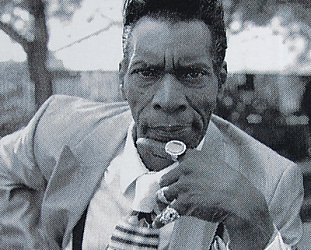Graham Reid | | 1 min read
Mano a mano

Just as there is no English-language equivalent of Jacques Brel (suggestions anyone?) or Edith Piaf, so there is no equivalent to Carlos Gardel (1890-1935) who became the voice of Argentinean folk-tango.
At a guess we might say Gardel was akin to an implosion Irving Berlin/Lennon-McCartney/Hank Williams with a touch of (unhelpfully) Brel and Piaf.
Although the facts of his birth are often disputed, it may be that Gardel, like Brel, was born outside of the country where he had his most profound influence: Brel in Belgium and making his reputation in France, Gardel possibly in France or Uruguay.
What is beyond doubt is his fame and songs which have endured long after his death in a plane crash in Colombia.
Today Gardel's likeness is as iconic in Argentina as that of Eva Peron and Diego Maradona, his music is still played everywhere (and not just for tourists) and he is even referenced by the current generation of hip and cutting edge tango singers.
Gardel was an actor, singer and songwriter (most often in collaboration with lyricist Alfredo la Pera), and he made hundreds of recordings, among them many classic songs. He adopted the tango form which had until then been almost exclusively an instrumental form popular among the working class and the poor, and brought his expressive baritone to it in lyrics which spoke to that audience.
His style -- from the poorer quarters of Buenos Aires where he started by singing in the local marketplace -- spread throughout South America and France, and he made films which were often sentimental but (as with Mario Lanza) were showcases for his remarkable voice which was powerful and emotional.
Although hugely popular in his lifetime, the cult of Gardel has grown since his sudden death at which there was an outpouring emotion akin to that which accompanied Valentino's.
There are statues and museums to him; dozens of CD reissues; his familar and stylish, Sinatra-like cool, image (in hat and often with cigarette in hand) appears on everything from matchboxes and posters to street murals; and films about his life.
Although he sang almost exclusively in Spanish, the emotion in his economic songs transcends language barriers.
And his voice comes to us from another era, one lost but -- thanks to Gardel and his legion of followers -- not gone forever.
There is a saying that he sings better every day.
Believe it.
And that's why we need to talk about Carlos Gardel.
For other articles in the series of strange or interesting characters in music, WE NEED TO TALK ABOUT . . . go here.







post a comment